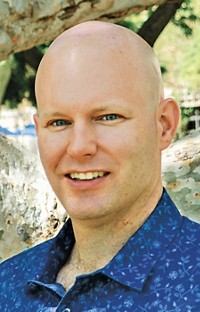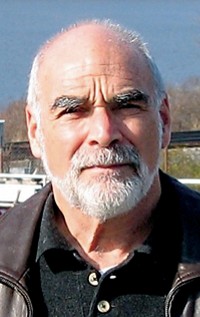Advertisement
Grab your lab coat. Let's get started
Welcome!
Welcome!
Create an account below to get 6 C&EN articles per month, receive newsletters and more - all free.
It seems this is your first time logging in online. Please enter the following information to continue.
As an ACS member you automatically get access to this site. All we need is few more details to create your reading experience.
Not you? Sign in with a different account.
Not you? Sign in with a different account.
ERROR 1
ERROR 1
ERROR 2
ERROR 2
ERROR 2
ERROR 2
ERROR 2
Password and Confirm password must match.
If you have an ACS member number, please enter it here so we can link this account to your membership. (optional)
ERROR 2
ACS values your privacy. By submitting your information, you are gaining access to C&EN and subscribing to our weekly newsletter. We use the information you provide to make your reading experience better, and we will never sell your data to third party members.
Biological Chemistry
Ronald Breslow Award for Achievement in Biomimetic Chemistry: Benjamin G. Davis
by Linda Wang
January 2, 2017
| A version of this story appeared in
Volume 95, Issue 1
Sponsor: Ronald Breslow Award Endowment
Citation: For the development of selective and benign bond-forming strategies applied to biology, enabling functional mimicry of synthetic biomolecules, bioconjugates, cells, and viruses in vitro and in vivo.
Current position: professor of chemistry, University of Oxford, U.K.
Education: B.A., chemistry, Keble College, Oxford; D.Phil., organic chemistry, Keble College, Oxford
What Davis hopes to accomplish in the next decade: “It’s a cliché to say that, ‘It’s never been a better time to be a chemist,’ but I genuinely think that this is true in the context of chemistry driving a true understanding of molecular mechanisms in biology, medicine, and plant science. The tools and techniques that we and others use and develop now allow one to genuinely consider what I would call a ‘real’ synthetic biology to come to fruition—one can now imagine application of synthetic methodology to bond-breaking and bond-making inside living systems to study and modulate their function. We see this as an exciting path to explore.”
What his colleagues say: “Professor Davis is a superstar in the field of biomimicry, having developed elegant chemical methods for generating biomolecule analogs with enhanced therapeutic function as well as technologies for exploring and engineering metabolism in biological systems.”—Carolyn Bertozzi, Stanford University
Awards
- 2017 ACS national award winners
- ACS Award in Separations Science & Technology: Rakesh Agrawal
- ACS Award in Applied Polymer Science: Zhenan Bao
- Gabor A. Somorjai Award for Creative Research in Catalysis: John E. Bercaw
- Peter Debye Award in Physical Chemistry: Bruce J. Berne
- Charles Lathrop Parsons Award: John I. Brauman
- Glenn T. Seaborg Award for Nuclear Chemistry: David L. Clark
- Award for Volunteer Service to the American Chemical Society: D. Richard Cobb
- E. B. Hershberg Award for Important Discoveries in Medicinally Active Substances: Stanley T. Crooke
- ACS Award in Organometallic Chemistry: Marcetta Y. Darensbourg
- Ronald Breslow Award for Achievement in Biomimetic Chemistry: Benjamin G. Davis
- ACS Award in Pure Chemistry and the National Fresenius Award: Neal K. Devaraj
- ACS Award for Team Innovation: Robert A. DeVries, Philip Garrou, Carol E. Mohler, Theodore M. (Ted) Stokich Jr., and Eric S. Moyer
- ACS Award for Affordable Green Chemistry: Peter J. Dunn
- F. Albert Cotton Award in Synthetic Inorganic Chemistry: Pingyun Feng
- Francis P. Garvan-John M. Olin Medal: Barbara J. Finlayson-Pitts
- ACS Award in Surface Chemistry: Cynthia M. Friend
- ACS Award in Industrial Chemistry: Jane Frommer
- Elias J. Corey Award for Outstanding Original Contribution in Organic Synthesis by a Young Investigator: Neil K. Garg
- George A. Olah Award in Hydrocarbon or Petroleum Chemistry: Robert H. Grubbs
- Nakanishi Prize: Martin Gruebele
- James T. Grady-James H. Stack Award for Interpreting Chemistry for the Public: Thomas A. Hager
- Harry Gray Award for Creative Work in Inorganic Chemistry by a Young Investigator: Nilay Hazari
- ACS Award for Research at an Undergraduate Institution: Maria R. Hepel
- George C. Pimentel Award in Chemical Education: Thomas A. Holme
- ACS Award in Analytical Chemistry: Donald F. Hunt
- ACS Award for Encouraging Women into Careers in the Chemical Sciences: Judith M. Iriarte-Gross
- Alfred Bader Award in Bioinorganic or Bioorganic Chemistry: Kim D. Janda
- ACS Award in Chromatography: Robert T. Kennedy
- ACS Award in the Chemistry of Materials: Douglas A. Keszler
- ACS Award in Colloid Chemistry: Nicholas A. Kotov
- Ahmed Zewail Award in Ultrafast Science & Technology: Stephen R. Leone
- Nobel Laureate Signature Award for Graduate Education in Chemistry: Junqi Li (student) and Martin D. Burke (preceptor)
- Herbert C. Brown Award for Creative Research in Synthetic Methods: Bruce H. Lipshutz
- Earle B. Barnes Award for Leadership in Chemical Research Management: Laurie E. Locascio
- Ernest Guenther Award in the Chemistry of Natural Products: Stephen F. Martin
- ACS Award for Computers in Chemical & Pharmaceutical Research: Yvonne C. Martin
- ACS Award for Encouraging Disadvantaged Students into Careers in the Chemical Sciences: Saundra Y. McGuire
- James Flack Norris Award in Physical Organic Chemistry: Robert A. Moss
- ACS Award in Polymer Chemistry: Murugappan Muthukumar
- E. Bright Wilson Award in Spectroscopy: David J. Nesbitt
- E. V. Murphree Award in Industrial & Engineering Chemistry: Eleftherios Terry Papoutsakis
- ACS Award in Theoretical Chemistry: Peter Pulay
- ACS Award in Inorganic Chemistry: Lawrence Que Jr.
- ACS Award for Creative Work in Synthetic Organic Chemistry: Matthew S. Sigman
- ACS Award for Creative Invention: Richard B. Silverman
- James Bryant Conant Award in High School Chemistry Teaching: Laura E. Slocum
- ACS Award for Creative Work in Fluorine Chemistry: Antonio Togni
- ACS Award for Distinguished Service in the Advancement of Inorganic Chemistry: William B. Tolman
- Joel Henry Hildebrand Award in the Theoretical & Experimental Chemistry of Liquids: Salvatore Torquato
- ACS Award for Achievement in Research for the Teaching & Learning of Chemistry: Marcy H. Towns
- Kathryn C. Hach Award for Entrepreneurial Success: David R. Walt
- ACS Award for Creative Advances in Environmental Science & Technology: Douglas R. Worsnop
- Frank H. Field & Joe L. Franklin Award for Outstanding Achievement in Mass Spectrometry: Vicki H. Wysocki
- Roger Adams Award in Organic Chemistry: Hisashi Yamamoto
- All Awards






Join the conversation
Contact the reporter
Submit a Letter to the Editor for publication
Engage with us on Twitter